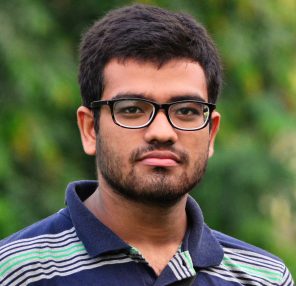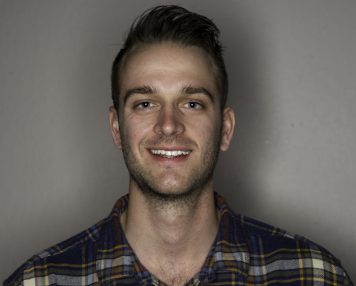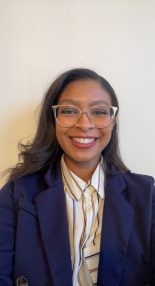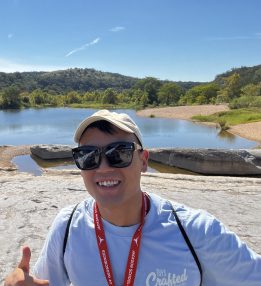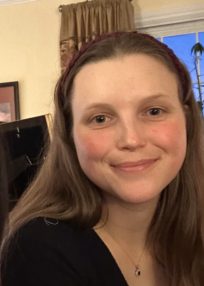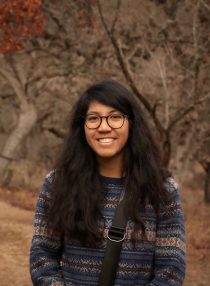People
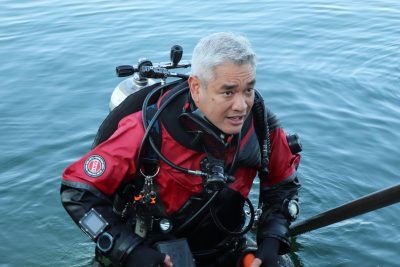 Prof. Bayani Cardenas (he/him) (CV) |
I study the broad topic of flow and transport dynamics of natural hydrologic systems. The scales of my research group’s investigations span from the interstitial space between grains to the entire planet. Our group uses a variety of approaches including conventional hydrologic and water quality monitoring, geophysical surveying, remote sensing, laboratory and field experiments, and mathematical modeling with high-performance computational models and novel theories. I am particularly motivated by fundamental problems crossing disciplines and that require drawing ideas and approaches from different fields.
I moved to the United States from the Philippines to pursue graduate studies and to expand my horizon. As a college student, I loved every facet of the geosciences and my passion for it grew with my deepening appreciation for nature, increasing awareness of environmental issues, and thirst for exploration. For my undergraduate capstone project, I mapped and studied ophiolites and their capping sedimentary sequence in the southern island of Mindanao in the Philippines. For my master’s thesis, I studied how the hydraulic properties of the streambed of a small creek in rural Nebraska affected surface water-groundwater interactions and streamflow depletion during groundwater extraction. My PhD dissertation primarily used computational simulations to investigate the mechanics of flow and transport through the terrestrial-aquatic interface referred to as hyporheic zones. As a graduate student, I taught introductory geology labs, an upper-level structural geology lab, and highly specialized hydrology classes including assisting with mathematical modeling exercises in graduate classes. I decided to specialize in hydrology because it simultaneously satisfied my curiosity and my yearning to do research that matters directly for people, particularly those with less access to life-sustaining water. I had also gotten enthralled by caves and karst landscapes and watersports near the end of college. Rocks + water + society = hydrogeology. It was a natural choice, and I have not looked back since. My wife and I started raising a family early. Our son was born as we finished our MS studies. Five years later as a newly minted PhD and professor, our daughter was born. Time outside of work is mostly spent with the family. Whenever I can, I try to enjoy the rolling hills of Austin on my road or mountain bike or on hikes. I also give my mind a break from science and work through cooking. I have picked up scuba diving again and started applying my underwater skills in the study of coastal groundwater discharge and its connections with coastal ecology and biogeochemistry. My goal is to train and uplift future leaders in hydrology and to answer the many open basic and applied scientific questions as long and as much as I can. Members of our team strive to push their personal boundaries and of hydrologic knowledge. For information on the 2025 GSA Hydrogeology Division Birdsall-Dreiss and LaMoreaux International Distinguished Lectures, please read this. |
PhD Students
|
BS Geology, University of Maryland, College Park
My research interests converge on questions about groundwater-surface water interactions, nutrient cycling, and contaminant fate and transport across the land-ocean continuum. I am currently developing reactive flow and transport models on the formation of iron-oxide and permeable natural reactive barriers (PNRB) and their dynamic interactions with arsenic and other bioreactive elements along the Meghna River in Bangladesh. The insight from these simulations will help in the protection and management of drinking water supplies in the region and in other similar places. See Will’s website |
|
MS Exploration Geophysics, Indian Institute of Technology-Kharagpur
Water hidden beneath the Earth’s surface comprises around 31% of the planet’s freshwater. My primary research interest lies in modeling transport and flows in the subsurface. My goal is to address the growing drinking water crisis due to groundwater contamination around the world by developing robust models to explain complex transport phenomena in the subsurface, primarily in the vadose and the critical zones considering the effects of increasing human interference is one of my broad research interests. I am currently focused on the complex transport processes that take place in the thawing Arctic permafrost due to global warming and how they affect the overall water cycle in the Arctic region. Not only is this important for the water cycle, the Arctic permafrost stores a huge amount of greenhouse gases like CH4, CO2, NOx which will get released as the Earth warms up and thus, will affect the global climate. I am interested in computational modeling and understanding the complex subsurface transport physics taking place in the dynamic Arctic subsurface. Other than research, I am interested in street photography and Formula1. See Neelarun’s website |
|
BS Geology/Earth Science, James Madison University MS Geological Sciences, The University of Texas at Austin After spending some time using remote sensing techniques to provide research that helped local and federal governments make decisions regarding hydrologic environmental issues, I knew I wanted to pursue a Master’s in Hydrology. I am currently interested in applying remote sensing techniques to study groundwater flow and contaminant transport processes. Aside from research I find all things space related really cool, so I enjoy watching documentaries or reading books about black holes, exoplanets, star formation, etc. I am a “foodie” so venturing out to new restaurants or food trucks is a joy of mine. See Ebony’s LinkedIn website |
|
BS Enviromental Engineering, University of Notre Dame
After receiving my bachelor’s degree in Environmental Engineering from the University of Notre Dame, I worked at Sandia National Laboratories for two years before coming to graduate school. I am interested in using reactive transport modeling to understand contaminant behavior in groundwater and surface water. Because of my engineering background, I enjoy the math and physics built into understanding how water moves in the environment. I am also interested in isotope geochemistry and hope to incorporate stable isotopes into my research. In my free time, I like to run, read, and craft (crochet or cross stitch). See Grace’s LinkedIn website |
MS Students
Undergraduate Honors Students and Researchers
Finley Davis
Former PhD Students, Post-doctoral Fellows, and Visiting Fellows
Parenthetical statements indicate position after UT or last known position
- Cansu Demir, PhD Geological Sciences, 2024 (Postdoctoral Fellow, Los Alamos National Laboratory)
- Yue Wu, PhD Aerospace Engineering and Mechanical Sciences (lead advised by Prof. J. Chen), 2023 (Aerospace Information Research Institute of the Chinese Academy of Sciences, Assistant Researcher)
- Anna Turetcaia , PhD Geological Sciences, 2022 (Postdoctoral Fellow, Pacific Northwest National Laboratory)
- Stephen Ferencz , PhD Geological Sciences, 2020 (Postdoctoral Fellow, Sandia National Laboratory)
- Mike O’Connor, PhD Geological Sciences, 2019 (Geological Soc. of America Congressional Science Fellow)
- Matthew Kaufman, PhD Geological Sciences, 2018 (Assistant Professor, Worcester State University)
- Eric Guiltinan, PhD Geological Sciences, 2018 (Postdoctoral Fellow, Los Alamos National Laboratory)
- Lizhi Zheng, PhD Geological Sciences, 2017 (Asssociate Professor, Tianjin Normal University)
- Lichun Wang, PhD Geological Sciences, 2015, Postdoc, 2015-2018 (Associate Professor, Tianjin University)
- Kevin Befus, PhD Geological Sciences, 2015 (Assistant Professor, University of Arkansas)
- Peter Zamora, PhD Geological Sciences, 2015 (Assistant Professor, University of North Carolina- Wilmington)
- Kuldeep Singh (Chaudhary), PhD Geological Sciences, 2013 (Assistant Professor, Kent State University)
- Audrey Sawyer, PhD Geological Sciences, 2011 (Assistant Professor, Ohio State University)
Visitors and post-doctoral fellows
- Fu Liao, visiting PhD student and CSC Scholar from China Univ. of Geosciences-Beijing, 2019-20 (Lecturer, China Univ. of Geosciences-Beijing)
- Anzy Lee, visiting PhD student from Purdue University, 2018-19 (Postdoctoral Fellow, Utah State University)
- Jiaqing Zhou, visiting PhD from Wuhan University, 2016-17 (Associate Professor, China Univ. of Geosciences-Wuhan)
- Wen Deng, Postdoc, 2010-14 (Assistant Professor, Missouri University of Science and Technology)
- Xiaobing Chen, visiting Postdoc (2014) and then visiting professor (2019) from Hohai University (Associate Professor, Hohai University)
Former MS/MA Students
Parentheses show immediate position after UT or last known position
- Ebony Williams, MS Geological Sciences, 2023, (PhD student at UT)
- Aya Shika Bangun, MS Geological Sciences, 2023 (Texas Commission on Environmental Quality)
- Micaela Pedrazas, MS Geological Sciences, 2020 (LRE Water)
- Jeffery Watson, MS Geological Sciences, 2016 (Hays-Trinity Groundwater Conservation District)
- Raquel Flinker, MS Geological Sciences, 2014 (Schlumberger, Brazil)
- Alyse Briody, MS Geological Sciences, 2014 (USGS New Mexico)
- Mike Kanarek, MS Geological Sciences, 2013 (Intera)
- F. Alexander Norman, MS Geological Sciences, 2013
- John Nowinski, MS Geological Sciences, 2010 (Pastor, Behling, & Wheeler)
- Travis Swanson, MS Geological Sciences, 2010 (PhD student at UT)
- Blair Stanley, MS Geological Sciences, 2009 (BP, Houston)
- Wai Sum Chan, MA Science and Math Education, 2011 (high school teacher)
- Meredith Mackey, MA Science and Math Education, 2008 (middle school teacher)
- Ashleigh Barber-Bomar, MA Science and Math Education, 2008 (high school teacher)
Former Undergraduate Students and REU/RET Fellows
Parentheses show immediate position after UT or last known position
- Sydney Villaruel, BS Environmental Science, 2024 (MS student, University of South Carolina)
- Austin Luu, BS Environmental Science, 2023
- Morgan Teel, BS Chemistry and BS Physics, 2022 (Southwest Research Institute, San Antonio)
- Christian Roumelis, BS Geological Sciences, 2020 (grad school, Ohio State University)
- Sebastian Muñoz, BS Geological Sciences, 2018 (grad school, Brown University)
- Kindra Nicholaides, BS Geological Sciences, 2018 (Southwest Research Institute, San Antonio)
- Lauryn Martinez, REU student, 2017, University of Puerto Rico-Mayaguez
- Aimee Ford, BS Geological Sciences, 2015 (law school, University of Michigan)
- Hannah Leiberg, REU student, BS Environmental Engineering (University of Maryland-Baltimore County), 2013 (grad school, University of Nevada-Reno)
- Julianne Wooten, BS Geological Sciences, 2012
- Benjamin Bass, BS Geological Sciences, 2011 (grad school, Rice University)
- Michael Markowski, BS Geological Sciences, 2010 (City of Austin)
- Anne Dunckel, BS Geological Sciences, 2010 (grad school, University of Virginia; StreamWatch)
- Nancy Pattyn, RET fellow, 2010, Anderson High School
- Katy Kaproth-Gerecht, BS Engineering Science (Smith College), 2009 (grad school, Pennsylvania State University)
- Laura Merner, REU student, BS Geography (Clark Univ), 2008 (grad school, University of Maryland-Baltimore County)
Celebrating People with Different Backgrounds and Perspectives
Researchers and educators gain tremendously by learning from each other and by appreciating different perspectives. Diverse communities are resilient, more creative, promote growth and awareness, and provide opportunities to all. Diverse communities are good for science, good for the environment, and even better for people. Our group therefore strives to bring people together. Present and past group members and visitors are represented by the flags below.
![]()
![]()
![]()
![]()
![]()
![]()
![]()
![]()
![]()
![]()
![]()
![]()
![]()
![]()
![]()
![]()
![]()
![]()
![]()
![]()
![]()
What is in a name and who is the person behind it?



